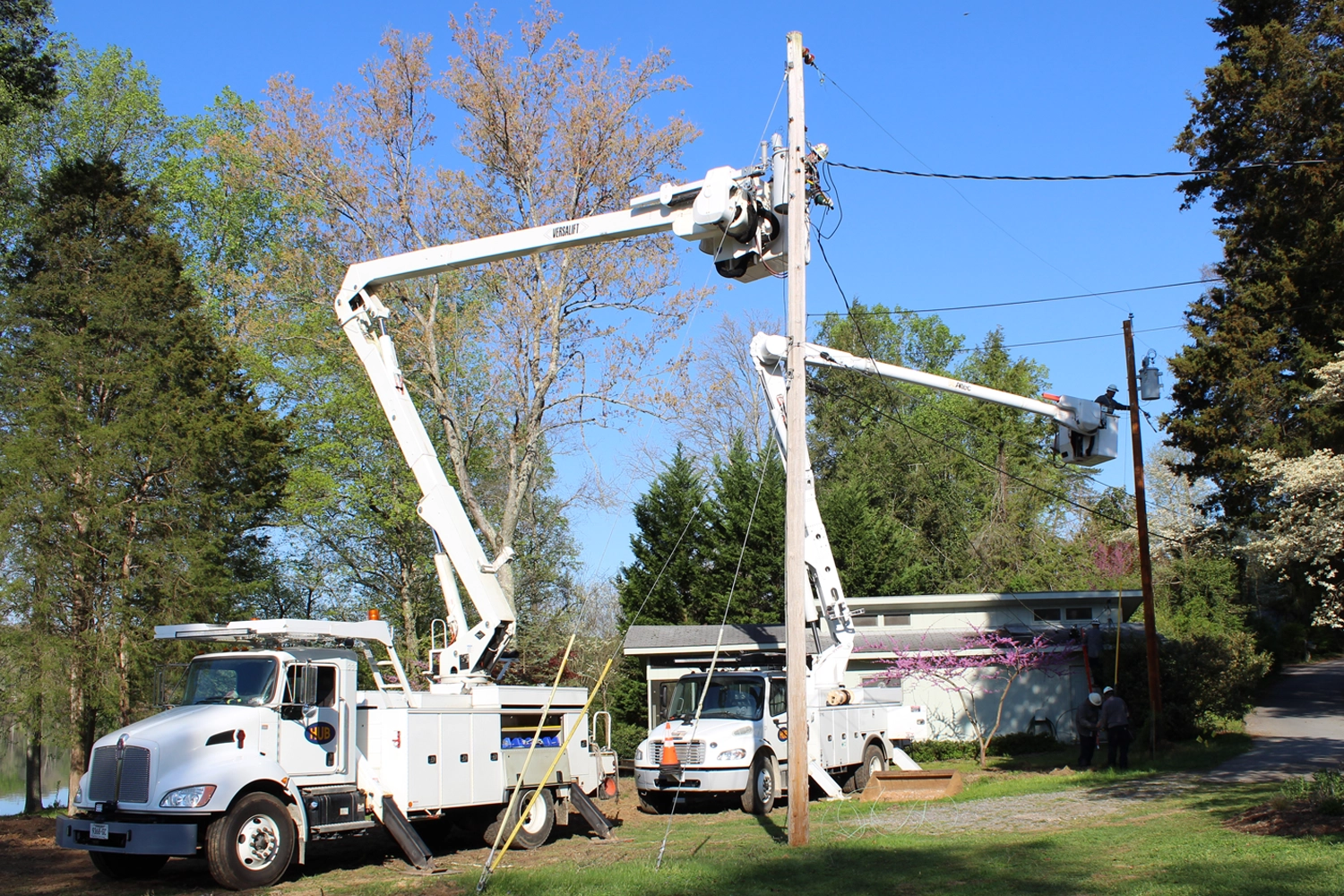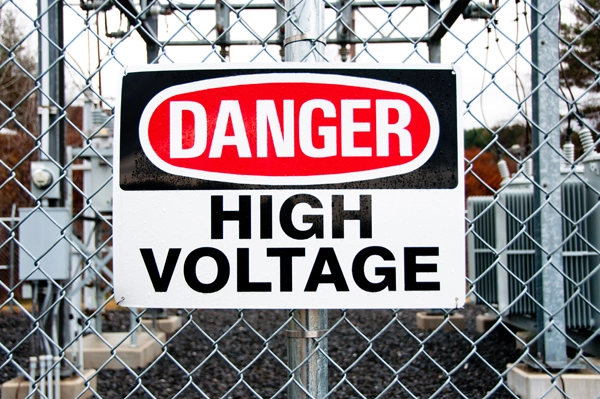Electric Safety

Staying Safe Around Electricity

Safely distributed electric power is a vital part of our community and local economy. The Harriman Utility Board offers the following information and “tips” towards ensuring the safety of our electric customers.
Storm Safety
Though infrequent, severe thunderstorms present two primary dangers involving distributed electricity; energized lines knocked down by falling trees or high winds, and damage or injury caused by improper use of, or poorly installed equipment.
- During a power outage, you should turn off all electric appliances and electronics; this will protect them from “power surges”.
- Keep refrigerators and freezers closed; even when disconnected, food will remain safe in your refrigerator for up to four hours, and up to forty-eight hours in your freezer.
- Be aware of carbon monoxide hazards; don’t cook indoors with charcoal and make certain all fuel-burning heat sources such as kerosene heaters are adequately ventilated. Make certain generators, including portable and natural gas units are installed properly by licensed professionals and operated in accordance with the manufacturer’s instructions.
- Avoid fire hazards. Use flashlights rather than candles and never re-fill a generator while hot.
- Avoid any downed power lines and never connect a generator directly to your home’s electrical service line as this can cause “backfeeding” into the system, posing great risk to HUB workers attempting to restore power.
- While HUB will work quickly to restore service and remove downed trees or debris in their way, it is ultimately the property owner’s responsibility to remove storm debris.
General Home Electrical Safety
Most homes operate on both 120 V (often referred to as “110”) and 240 V (often referred to as “220”) alternating current. Both present significant risk of injury or death from electrical shock that can be easily avoided by following these steps:
- Replace worn or damaged cords on appliances, to include extension cords.
- Never “overload” a circuit by installing appliances or devices out of code, or by plugging in too many cords to a single outlet (often occurs when using “power strips”).
- Remember that electricity creates heat. Overloaded circuits can cause fire, and electric heaters should never be placed on or near flammable materials such as curtains, drapes, rugs, or paper.
- “Child-Proof” you home by covering unused outlets with plastic outlet caps.
- Never set an electric appliance near sources of water. Never touch an appliance (such as a hair dryer) that has fallen into water. Always be sure to dry your hands before operating electrical appliances or equipment.
- Avoid running electric cords underneath carpets or rugs.
Power Line Safety
Only trained, HUB personnel should attempt any work on or near electric distribution lines or poles. The following precautions should always be taken around electric power lines:
- Assume every wire, even downed lines, are “live”.
- Never fly a kite, model aircraft, or “drone” near power lines.
- Always look up when moving ladders, installing scaffolding, or operating lifts.
- Never attempt to remove fallen branches or debris from power lines… leave that to HUB’s professionals!
- If a power line falls across your vehicle, stay inside. If forced to abandon the vehicle, jump clear without touching the vehicle and the ground at the same time.
Always be sure to “Call Before You Dig!” (TN One Call at (800) 351-1111, or dial “811”) to be provided information regarding buried electric power lines at no cost.
